Fot. ECCP
Europe on the way to Twin Transition: driving digital and green readiness
There are no doubts in what ECCP was saying before the event: that “clusters foster collaboration, innovation and growth among businesses, research institutions, and public authorities. They are critical in enhancing productivity, accelerating the green and digital transition, and bolstering Europe’s global competitiveness”. Totally agree, but during the conference speakers – industry leaders, policymakers, and experts from across Europe – highlighted some problems that needed to be solved. Montse Daban, President of the Council of European Bioregions (CEBR), was talking about the gap between Europe and the USA or China. There are some branches of the economy in which we are loosing our once strong position and becoming more and more dependent on foreign suppliers, like automotive, pharmaceutical and chemical industries and photovoltaics.
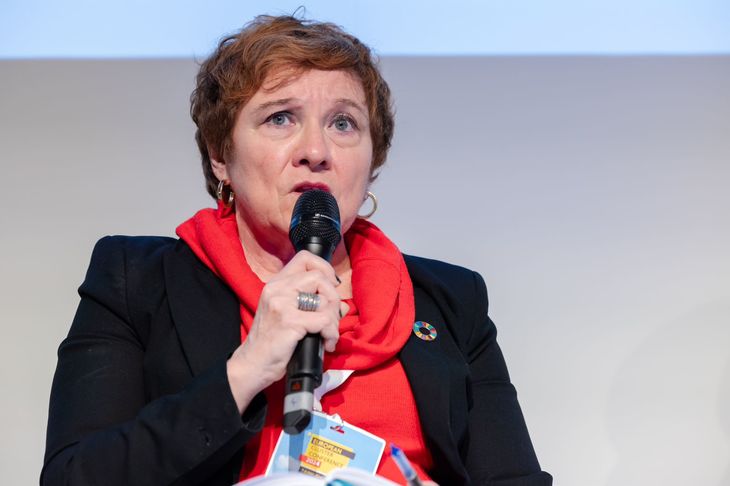
Fot. Montse Daban, source: ECCP
Increased interdependencies and resources concentration is a big catch. Clusters can help us to close that gap, reduce the distance to the leaders and retain our position, especially since we have very strong science community in many innovative fields, like biotech, medtech, pharma, AI etc. “There is still a big homework to do and the European Cluster Conference is a good place to start” – Thierry Breton, European Commissioner for Internal Market in his video message during the conference’s opening was right!
Common Europe against global crisises
We had several wake-up calls in Europe in the last few years – the COVID-19 pandemic, Russian aggression on the Ukraine, generally tense international relations and in the future another crisis may come, so we need to stay ready for it. There is no chance that one European country could guarantee a stability and security for itself alone. “Estonia is to small. Germany is to small. France is to small. Europe is enough” – Pierre-Alexandre Balland, Professor at Utrecht University and Research Fellow at the Center for Complex Systems Studies, emphasized.
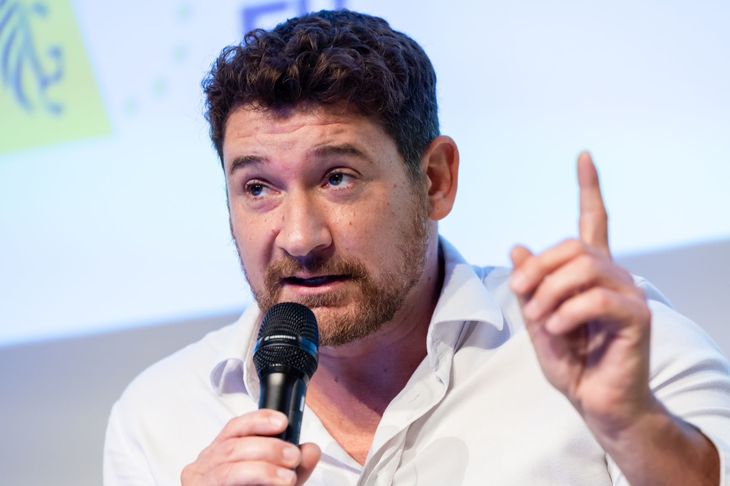
Fot. Pierre-Alexandre Balland, source: ECCP
Together we can make a difference. This strong thought has not left me since I returned from Brussels. To remind myself of this, after the conference, I privately visited the European Parliament. It was an uplifting experience. Even in my worst dreams, a few years ago, I did not think I would live to see a war in the immediate neighbourhood of the modern Europe, just around the corner. But I have never doubted that it is worth living in a common Europe. Our generation in this part of the world is very lucky, not everyone can say so. “We should be proud living in such strong area like EU” – an important message 20 years after Polish access to EU from Kerstin Jorna, Director General for Internal Market, Industry, Entrepreneurship and SMEs of the European Commission.
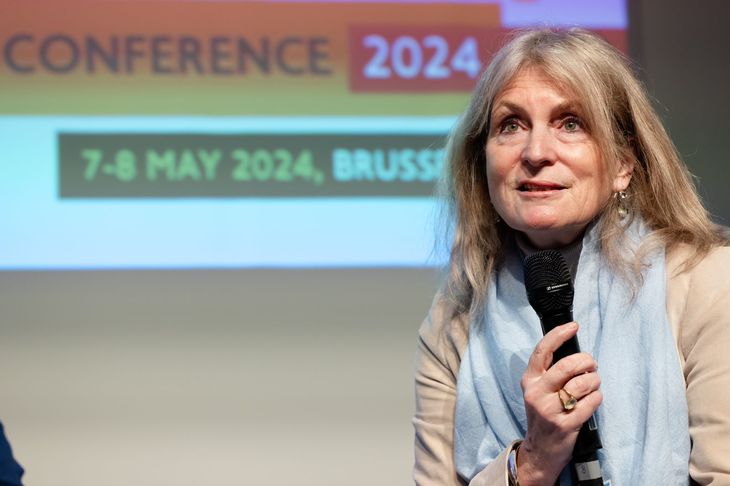
Fot. Kerstin Jorna, source: ECCP
Coming back to clusters and its vital role in building competitive, resilient, and sustainable value chains and reshaping existing ones, security and defense industries should be also an important point in EU’s agenda. Andrea Barbagelata, SME Counsellor for Aerospace, Security and Defense Industries Association of Europe, pointed, how clusters can help Europe, if the worst-case scenario comes true and why we still cannot take full advantage of their usefulness. Above all, the problem is that we do not have a critical mass of clusters dealing with aerospace, security and defense industries. There are hundreds or even thousands of clusters, start-ups and companies dedicated to artificial intelligence, machine learning and other new information technologies, but only few of them are developed in the context of defense system. Despite the previously mentioned Russian wake-up call, there is still skepticism about the defense industry in Europe. Meanwhile if we are able to develop the most effective solutions, money will come. Speaking firmly, defense is only a business for investors and this smart money will help us to scale-up the best ideas.
The list of challenges does not end there
When we talk about war, any other problem becomes trivial, but there is no shortage of challenges in Europe today. For example we need to be ready to reconcile green transformation with well-being of people living in mining areas, which is very important issue for Poland, especially some particular regions, like Silesia. This was the topic of the presentation of Fernando Riaza Fernandez, Economist and Policy Analyst in the Centre for Entrepreneurship, SMEs, Regions and Cities, OECD. We had a conversation which each other about the most interesting case studies connected with his activity in the OECD Mining Regions, so more on that soon.
Europe is on its road to carbon-neutrality and it will be a game changer in energy security of EU. It is a domain of Flux50. CEO Frederik Loecx has an ambitious goal to gain international recognition for Flanders as a smart energy region. Great example of that is Green Energy Park. Thanks to the kindness of the organizers, we were able to visit this place and see the solutions already in operation up close. We will also present the results of this trip in a separate material.
Clusters may not be the solution to every problem, but they are the best we have
Some spokesmen were super enthusiastic about this cluster policy, e.g. Kristina Sermuksnyte-Alesiuniene, Vice-President of the European Clusters Alliance, who stated: “Name a challenge – clusters are the answer”. I do not look at this case so uncritically, but I know that it is only a kind of a simplification, a slogan, and the truth is that we set a course for green and digital transformation, strategic autonomy for EU and being at the beginning of this bumpy road, clusters are the best we have. However, if we want to build a strong cluster environment, we need to start with ourselves and our own organizations. “Take care of yourself first, just like with an emergency mask on a plane” – she continued.
“The European cluster ecosystem is a contributor to EU’s competitiveness and resistallance” – Jan-Philippe Kramer, Team Leader, Data and Policy in the ECCP said. We surely have no doubts that clusters generate collective intelligence and innovation for sectoral development, but during this conference we were trying to prove that clusters are also hotspots attracting investments. “Being a member of a cluster organisation is good for company. The data guy was right! A public-private partnership is something new and we need to educate that it is a right choice” – Mark Andries, General Administrator of the Flanders Innovation & Entrepreneurship (VLAIO), argued. “Being part of a cluster means easier access to finance and attracting investments” – Veronique Willems, Secretary-General of SMEunited, added.
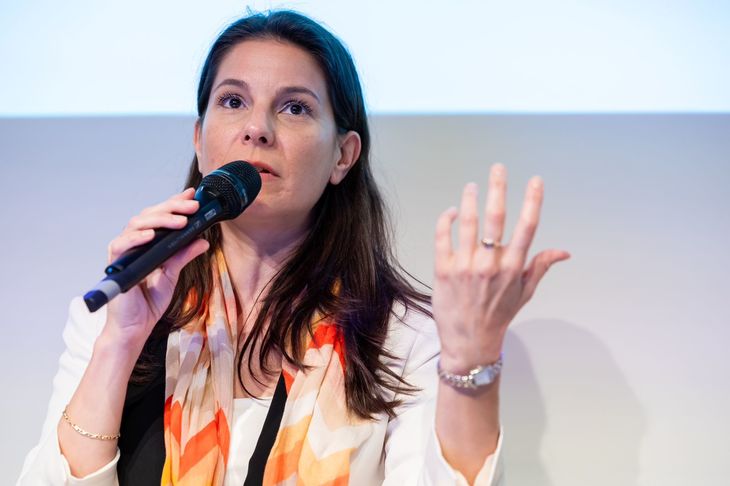
Fot. Veronique Willems, source: ECCP
Investors need a stability and clusters reduce an uncertainty around investments. Jakub Boratyński, Director for Networks and Governance in the Directorate-General for Internal Market, Industry, Entrepreneurship and SMEs at the European Commission, argued about that, saying, however, that the impulse must be top-down, systemic: “Smart public capital encourage to risk and it generates private investments”. It was a very important declaration in the context of being fit for the next EU mandate, as the title of one of the panel sessions indicated. One of the main takeaway from this session was that clusters are well-placed to deploy public funding towards strategic projects.
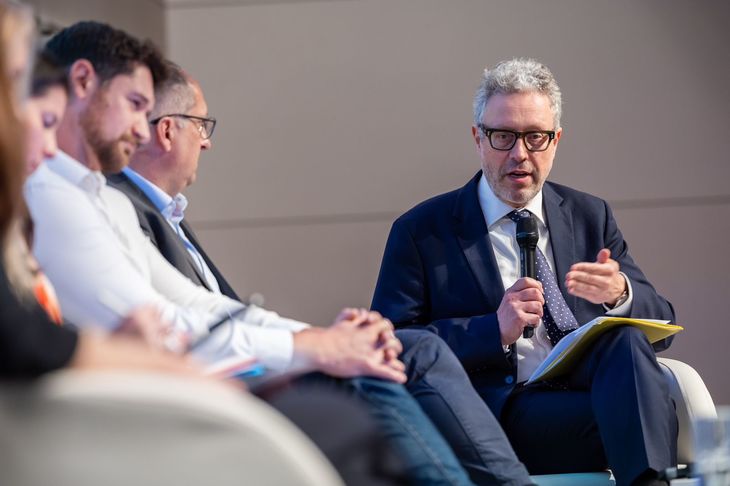
Fot. Jakub Boratyński, source: ECCP
Networking above all!
Apart from lectures and panel sessions, the European Cluster Conference 2024 featured dynamic matchmaking sessions with 400 of professionals connectings and an exhibition with +70 booths, providing attendees unparalleled opportunities to forge connections, explore innovative solutions, and showcase their expertise. Participants can unlock new avenues for collaboration and growth through these platforms, driving Europe’s industrial competitiveness forward, because like Pierre-Alexandre Balland said: “The economy grows when humans become more connected”. I think it is the best summary of European cluster policy. Christian Ketels, Director and Co-Chair of the Innovation Fund Denmark, and Senior Advisor of the House of Governance at Stockholm School of Economics, also raised this issue: “Clusters are more relevant than ever. They are a platform to build a trust. They give a sense that people can make a difference, have an influence, like during the pandemic”. Here are some highlights from the matchmaking event:
My own perspective
By dealing with biotech, medtech or pharmacy on a daily basis, thanks to the participation in the European Cluster Conference I could significantly expand my horizons, pop my filter bubble and get to know the most burning challenges on the way to Twin Transition: driving the EU’s digital and green readiness. Now I know the significant role of clusters in this transformation.
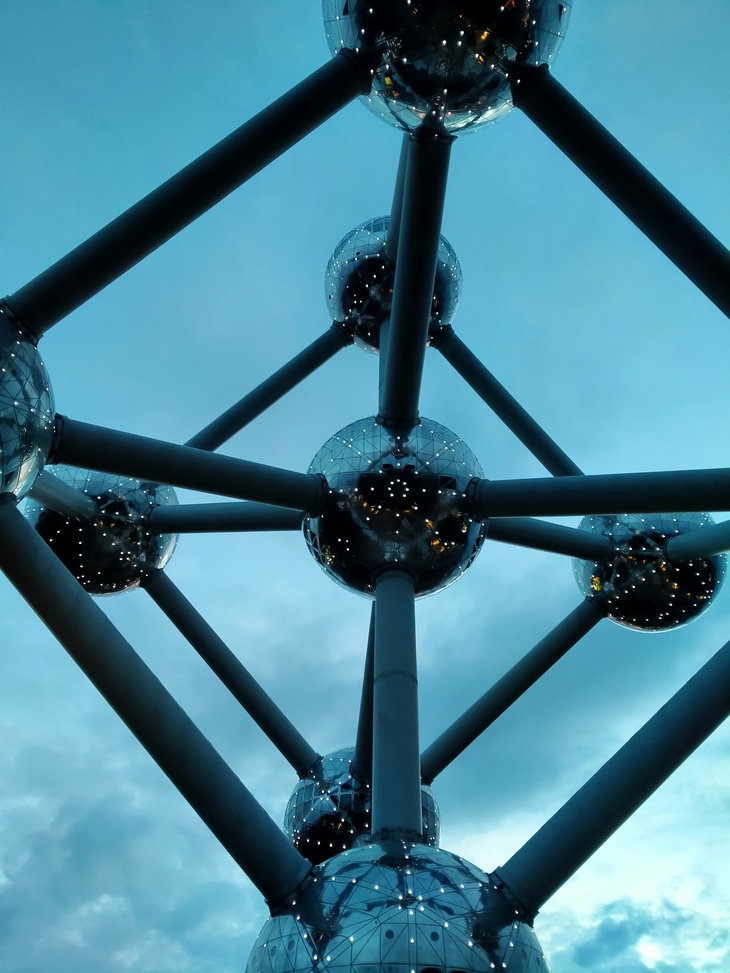
Fot. The Atomium, source: own material
There was also a strong tourist accent. The Atomium was the main symbol of the conference – in real life an iron crystal magnified 165 billion times is an architectural ode to science! Breathtaking. Connecting all things together and going into the core essence of collaboration in the European Union, my educational visit to the European Parliament and a tour of the Capital of Europe completed the puzzle.
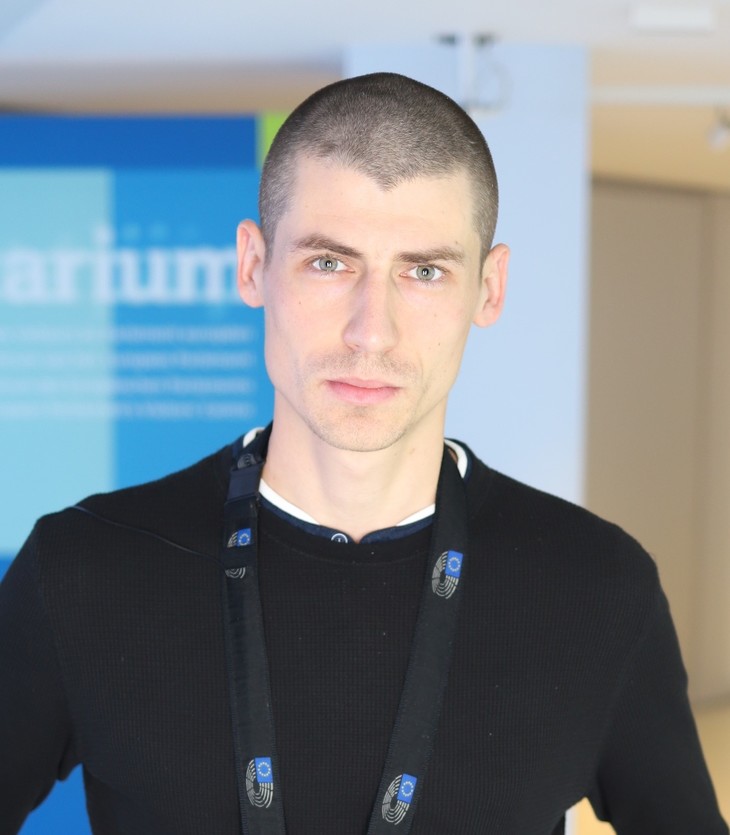
Fot. During visit to the European Parliament, source: the European Parliament
To be continued…
You can expect several new materials from the conference in the coming weeks. I was talking with our compatriot Jakub Boratyński about the need of clustering and cooperation in a difficult time in Poland, where Euroscepticism increases and in the same time voter turnout decreases in some social groups. Why there is no other way than digital transformation for companies and policymakers in their investment choices and decision-making processes? Pierre-Alexandre Balland, AI, blockchain, future of cities and complex systems expert, tried to answer these and other questions. Antonio Novo, President of the European Clusters Alliance, presented me the idea and the role of his organization and how its impact evolve and grows over the years.
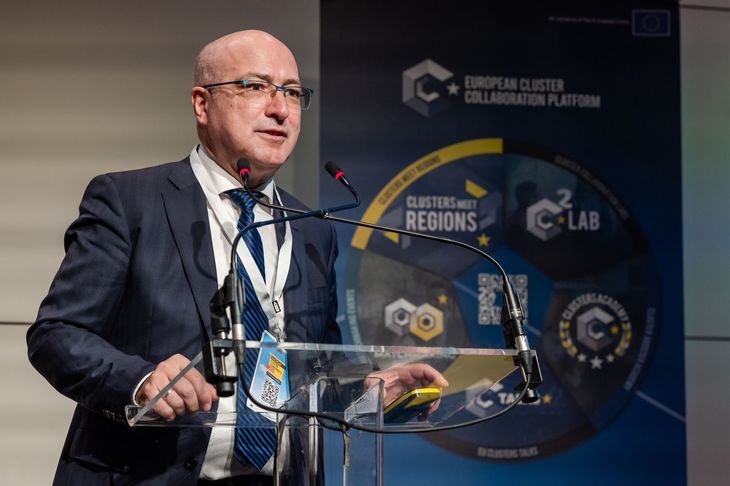
Fot. Antonio Novo, source: ECCP
Fernando Riaza Fernandez surprised me with his knowledge about mining regions in Poland. He touched examples of different case studies, based on this broad experience and the OECD reports he contributed. Jasna Komatović, Corporate Communication & Project Office at the Vojvodina ICT Cluster (VOICT), introduced me The EINSTEIN Project: Pioneering Nutrifood-based Solutions for a Healthier Europe. It was only one of many success stories I learned during my Brussels trip. However we will start with the report from the trip to Green Energy Park and the conversation with Frederik Loeckx. There are some insights I was looking for. For example my curiosity made me ask him about, what biotech projects GEP has in its portfolio? Stay tuned and watch some highlights from the conference:



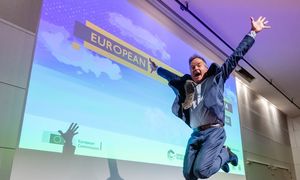
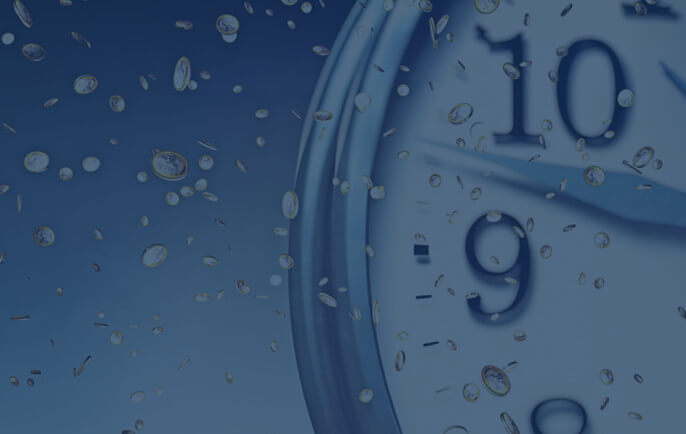
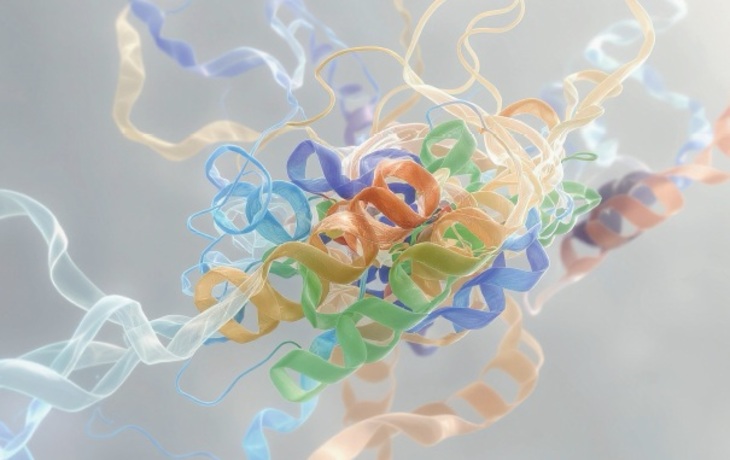


















KOMENTARZE